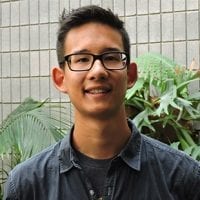
Investigating the Role of Chromatin in Meiotic Recombination of Maize
Project Abstract
Meiosis is the process by which eukaryotic organisms generate gametes for sexual reproduction. In prophase I of meiosis, homologous chromosomes are paired and undergo recombination; double-strand breaks(DSBs) are formed, and a select few are converted into crossovers(COs), sites where homologous chromosomes exchange sections of DNA. Class I COs are interfering, preventing other crossovers from occurring nearby, and are the most common form of CO.
In maize, our lab has found that Class I CO sites are more likely to be found in euchromatic chromatin, suggesting that chromatin structure may determine crossover location. In this project I performed immunolocalization experiments between potential crossover sites and the euchromatin and heterochromatin histone modification markers H3K9me2 and H3K4me3, respectively, on the maize inbred lines B73 and CML228. Because these inbreds exhibit different distribution patterns in crossover localization, the data will reveal whether this variation between B73 and CML228 is directly related to chromatin structure, or some other confounding factor, such as timing differences in DSB formation. To track DSB to CO conversion, we used antibody markers for HEI10, a ZMM protein that localizes to and helps stabilize select DSBs for CO formation, making it an effective candidate for tracking DSB to CO conversion.
This research furthers our understanding of how meiotic crossovers are determined. Increasing our knowledge of crossover determination will enable us to understand how genetic diversity arises, and may eventually allow for more direct control over the genetic diversity of important commercial and sustenance crops grown today.
My Experience
Through my time here at Cornell, I have gained a stronger desire to continue my education with graduate studies in the biological sciences. Talking with graduate students and mentors, as well as the graduate school panel seminar, has increased my confidence in applying to graduate schools. In addition, I am excited to have had the opportunity to work in a lab at Cornell, gaining research experience that will be invaluable in my future career. I would like to thank my mentor, Adele Zhou, and PI, Wojtek Pawlowski, for their guidance and helpful advice.
Through the weekly lab seminars, I have also greatly broadened my knowledge of the plant sciences field. I leave this internship with a greater appreciation of how powerfully the work being done here affects the world, such as the Cassava Breeding Project.
